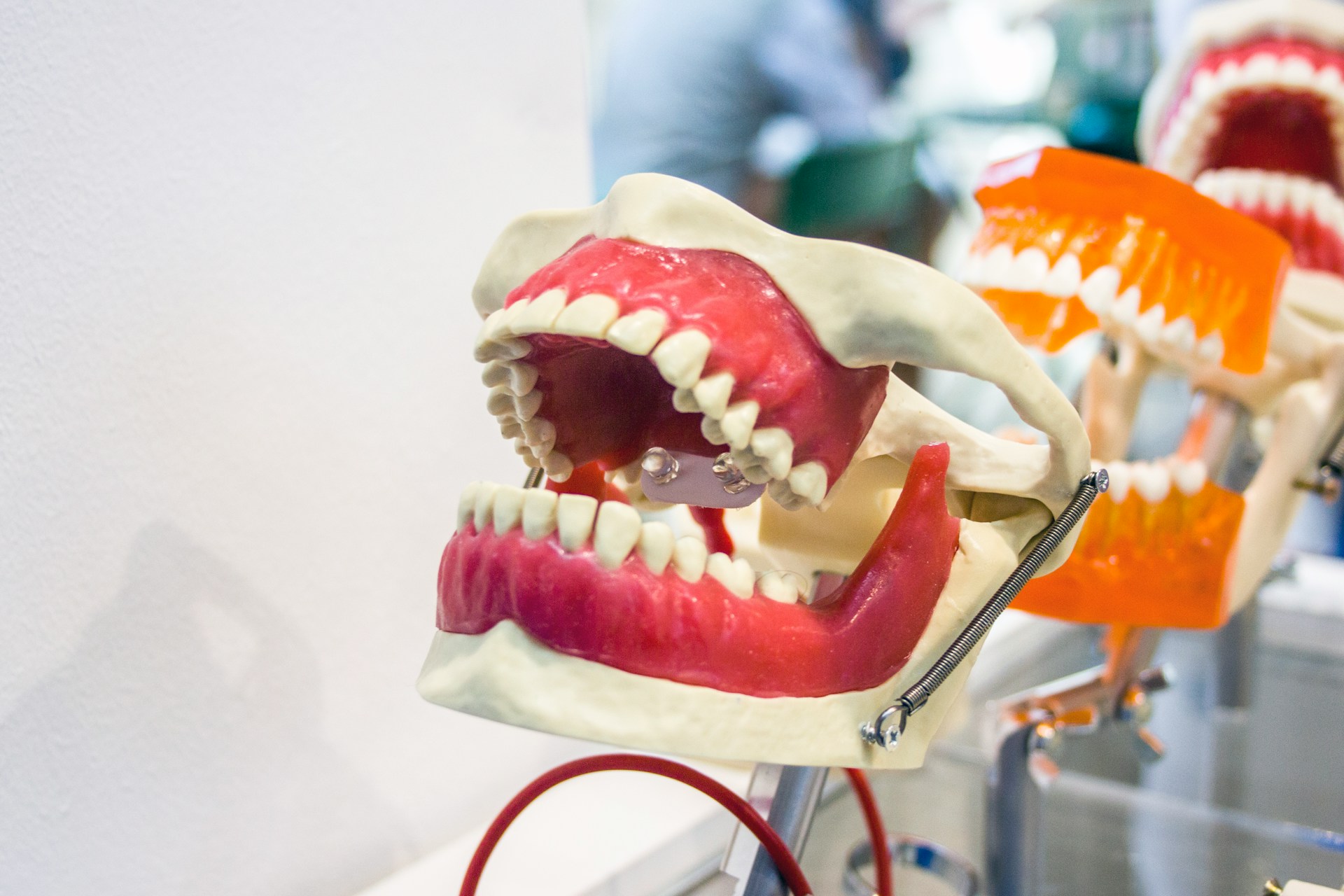












Blog Article


How to Optimize Dental Operations with Industry-Specific AI
The dental industry faces mounting pressure to streamline operations while maintaining quality patient care, and artificial intelligence offers powerful solutions to address these challenges. Modern dental practices and DSOs lose thousands of dollars annually from missed appointments, inefficient scheduling, and poor patient communication systems that could be automated through AI technology.
AI-powered tools can reduce administrative overhead by up to 60% while improving patient satisfaction scores and increasing revenue through better appointment management and automated follow-up systems. These technologies handle routine tasks like appointment scheduling, patient reminders, and basic inquiries, allowing dental teams to focus on clinical care and complex patient needs.
The most successful dental organizations are already implementing AI agents for dental clinic efficiency to transform their workflows. From automated patient communication to real-time analytics dashboards, these systems provide measurable improvements in both operational efficiency and patient experience within weeks of implementation.
Key Takeaways
- AI automation reduces administrative tasks by 60% while improving patient satisfaction and revenue
- Automated scheduling and communication systems prevent missed appointments and lost revenue
- Real-time analytics dashboards provide actionable insights for optimizing dental practice operations
Benefits Of AI For Dental Practices And DSOs
AI technology delivers measurable improvements in call management, staff productivity, and patient satisfaction. These advances help dental practices capture more revenue while reducing operational costs.
Reducing Missed Calls In Dental Clinics
Missed calls directly impact practice revenue, with each unanswered call potentially representing lost appointments worth $200-500. AI communications platforms handle patient calls 24/7, ensuring no patient inquiry goes unaddressed.
Traditional phone systems fail when staff members are busy with in-office patients or during after-hours periods. AI in dentistry solves this problem by managing multiple conversations simultaneously across phone, text, and chat channels.
Key improvements include:
- 24/7 availability for appointment scheduling
- Instant response times that prevent patients from calling competitors
- Automated appointment booking without staff intervention
- Real-time integration with practice management systems
Dental practices using AI phone management see up to 85% reduction in missed calls. This technology captures appointments that would otherwise be lost to competitors during busy periods or outside business hours.
Increasing Efficiency For Front Desk Staff
Front desk teams spend 60-70% of their time on repetitive tasks like appointment scheduling, confirmations, and basic patient questions. Dental AI automates these routine interactions, allowing staff to focus on complex patient needs and in-person care.
AI systems handle appointment reminders, cancellation management, and rescheduling without human intervention. Staff productivity increases when they're freed from answering the same questions repeatedly throughout the day.
Automation capabilities include:
- Appointment confirmations and reminders
- Insurance verification calls
- Basic treatment information requests
- Payment scheduling and follow-ups
Recent surveys of dental professionals show significant time savings when AI handles administrative tasks. Staff can dedicate more attention to patient care, treatment planning, and revenue-generating activities.
The technology integrates with existing practice management software. This eliminates duplicate data entry and maintains accurate patient records across all systems.
Improving Patient Experience In Dental Practices
Modern patients expect immediate responses and convenient scheduling options. AI meets these expectations by providing instant communication and seamless appointment management across multiple channels.
Patient satisfaction increases when they can book appointments, ask questions, and receive confirmations through their preferred communication method. AI responds in natural, conversational language that feels personal rather than robotic.
Experience improvements include:
- Immediate response to inquiries at any hour
- Multi-channel communication (phone, text, email, chat)
- Personalized appointment reminders and follow-ups
- Reduced wait times for basic information
Studies show that 62% of patients switch dentists due to poor service experiences. AI prevents common frustrations like long hold times, missed callbacks, and scheduling difficulties that drive patients away.
The technology maintains conversation history across all touchpoints. This ensures continuity when patients switch between communication channels or when staff members need to join conversations for complex issues.
Missed Calls And Revenue Loss In Dentistry
Dental practices miss 32% of calls during business hours, creating substantial revenue losses that compound monthly. Each missed call represents $850 to $1,300 in first-year revenue, with lifetime patient values reaching $4,500 to $7,500 per patient.
Impact Of Missed Calls On Patient Acquisition
Missed calls create an immediate barrier to patient acquisition in dental practices. When potential patients cannot reach the office, 75% to 80% do not leave voicemails or call back.
These patients immediately contact competing practices instead. This behavior pattern means practices lose new patient opportunities within minutes of missing the initial call.
The timing of missed calls compounds the problem. Peak call volumes occur during Monday mornings and lunch hours when staff availability is limited. After-hours calls represent 47% of appointment requests, yet most practices rely on voicemail systems that patients abandon.
Key Patient Behaviors:
- 60% of patients abandon calls not answered within one minute
- 87% hang up when reaching voicemail after hours
- Only 42% of answered calls result in scheduled appointments
Revenue Loss Metrics From Unanswered Calls
The financial impact of missed calls costs dental practices between $850 to $1,300 in first-year revenue per missed call. Practices missing 35% of incoming calls face substantial annual losses.
A practice receiving 75 new patient inquiries monthly loses 26 potential patients through missed calls. At conservative valuations, this represents $22,100 in monthly revenue loss or $265,200 annually.
Revenue Loss Breakdown:
Call VolumeMissed RateMonthly LossAnnual Loss50 calls35%$14,875$178,50075 calls35%$22,313$267,750100 calls35%$29,750$357,000
Lifetime patient values increase these losses significantly. With average lifetime values of $4,500 to $22,000 per patient, annual losses can reach several hundred thousand dollars depending on fee schedules and patient retention rates.
Case Studies On Call Handling
Real-world implementations demonstrate measurable improvements in call management and revenue recovery. Unified Dental Care, operating eight locations across Michigan, achieved a 12% revenue increase worth over $100,000 monthly after implementing systematic call handling improvements.
The practice maintained 100% call answer rates while reducing front desk headcount by 17%. Profit margins increased by 24% through captured opportunities that previously went to competitors.
Normandy Lake Dentistry in Florida maintained 90% call answer rates despite receiving thousands of monthly calls. Their systematic approach to call management prevented revenue loss during peak volume periods.
Measurable Results:
- 90%+ answer rates achieved through systematic improvements
- 12-24% profit growth within implementation months
- Revenue improvements of $8,000 to $12,000 monthly from captured calls
- ROI realized within 30-90 days of implementation
Automated Appointment Scheduling For Dentists
Modern dental practices can reduce administrative overhead by 50-70% through intelligent scheduling automation. AI appointment booking systems eliminate manual processes while integrating directly with existing practice management software.
Streamlining Booking Processes With AI
AI scheduling systems replace traditional phone-based booking with 24/7 automated patient interactions. These platforms use natural language processing to understand patient requests and instantly confirm appointments based on real-time availability.
Smart scheduling algorithms consider multiple factors when booking appointments:
- Provider specialties and availability
- Treatment duration requirements
- Equipment and room availability
- Patient history and preferences
The automation handles complex multi-appointment treatment plans without staff intervention. Patients can book through multiple channels including websites, mobile apps, and voice systems.
Time savings typically include:
- 25-30% reduction in front office scheduling tasks
- Elimination of phone tag between patients and staff
- Automatic confirmation and reminder sequences
AI systems learn from booking patterns to optimize appointment slots. They can predict peak demand periods and adjust availability accordingly.
Reducing No-Shows And Enhancing Attendance
Automated reminder systems send personalized messages through SMS, email, and phone calls at optimal times. Advanced AI scheduling platforms analyze patient behavior to determine the most effective reminder timing for each individual.
Predictive analytics identify high-risk appointments by analyzing:
- Historical no-show patterns
- Appointment timing preferences
- Weather and seasonal factors
- Treatment type complexity
The systems automatically offer alternative appointment times when cancellations occur. They can fill gaps by contacting patients on waitlists within minutes of cancellations.
Attendance improvements typically show:
- 25-35% reduction in no-show rates
- 15-20% improvement in appointment utilization
- $60,000-$120,000 annual revenue recovery
Smart rebooking features automatically reschedule missed appointments based on patient availability. The system maintains treatment plan continuity without manual intervention.
Direct Scheduling Into PMS Systems
Modern AI scheduling platforms integrate seamlessly with existing practice management software through APIs. Real-time synchronization ensures appointment data remains consistent across all systems without duplicate entry.
Integration capabilities include:
- Automatic patient record creation and updates
- Treatment plan coordination and sequencing
- Insurance verification during booking
- Chart preparation before appointments
The systems sync with clinical workflows to optimize provider schedules. They consider procedure complexity and required preparation time when booking appointments.
Technical benefits encompass:
- Single-source data management
- Reduced administrative errors
- Streamlined billing processes
- Enhanced reporting capabilities
Direct PMS integration eliminates the need for staff to manually transfer appointment information. The automation maintains data accuracy while reducing administrative workload by up to 60%.
Analytics Dashboards For Dental Operations
Modern dental practices need real-time visibility into their operations to maximize revenue and efficiency. Advanced dashboards track missed opportunities, staff performance, and multi-location metrics that directly impact practice growth.
Missed-Call Heatmaps And Revenue Attribution
Missed calls represent significant revenue loss for dental practices. Analytics dashboards display call patterns through visual heatmaps that show peak missed-call times throughout the day and week.
These systems calculate potential revenue loss by analyzing missed call frequency and average treatment values. Practices typically lose $200-500 per missed call when considering routine cleanings, procedures, and long-term patient value.
Key missed-call metrics include:
- Peak missed-call hours
- Revenue attribution per missed opportunity
- Call abandonment rates by time period
- Staff response time patterns
Heatmap visualization helps practice managers identify staffing gaps during high-volume periods. Many practices discover they miss 20-30% more calls during lunch hours and staff transitions.
Dental KPI dashboards provide automated tracking of these metrics across multiple communication channels including phone calls, web inquiries, and patient portal messages.
Tracking Staff Follow-Up And Outcomes
Staff performance directly affects patient conversion rates and practice revenue. Analytics dashboards monitor individual team member follow-up activities and their conversion outcomes.
These systems track appointment scheduling success rates, treatment acceptance ratios, and patient communication response times for each staff member. Managers can identify top performers and coaching opportunities through detailed performance breakdowns.
Essential follow-up metrics:
- Appointment conversion rates by staff member
- Treatment plan acceptance percentages
- Patient callback completion rates
- Revenue generated per team member
Dashboard notifications alert managers when follow-up tasks remain incomplete after specified timeframes. This prevents potential patients from falling through communication gaps.
AI-powered analytics help dental practices streamline staff workflows by automatically prioritizing high-value follow-up opportunities and identifying patients most likely to schedule treatments.
Multi-Location Insights For DSOs
Dental Support Organizations need consolidated views across all practice locations to identify performance variations and growth opportunities. Multi-location dashboards standardize reporting metrics while highlighting location-specific trends.
These platforms compare key performance indicators between locations including patient acquisition costs, treatment acceptance rates, and revenue per patient. DSO executives can quickly identify underperforming locations and successful practices to replicate.
Critical DSO dashboard features:
- Location performance rankings
- Standardized KPI comparisons
- Patient flow analysis across sites
- Provider productivity benchmarking
Cross-location patient referral tracking helps DSOs optimize their network effects. Patients often transfer between locations for specialized treatments or convenience factors.
Real-time alerts notify DSO management when individual locations experience significant metric changes. This enables rapid response to operational issues or market opportunities before they impact quarterly performance.
AI-Driven Patient Communication Solutions
Modern dental practices leverage intelligent messaging systems that adapt to patient emotions and provide instant responses to common questions. These automated communication tools enhance patient satisfaction while reducing staff workload through personalized follow-up sequences.
Empathetic AI Text Messaging
AI messaging platforms analyze patient language patterns to detect anxiety, frustration, or confusion in text communications. The system adjusts its tone and response style accordingly.
Key emotional indicators AI detects:
- Anxiety markers: "nervous," "scared," "worried"
- Urgency signals: "pain," "emergency," "ASAP"
- Confusion phrases: "don't understand," "what does this mean"
When a patient texts about pre-procedure anxiety, the AI responds with reassuring language and offers additional resources. For urgent concerns, it escalates immediately to staff while providing comfort.
The technology integrates with practice management systems to access patient history. This allows personalized responses based on previous treatments and preferences.
Response customization includes:
- Treatment-specific reassurance
- Appointment preparation instructions
- Pain management guidance
- Insurance coverage explanations
AI-powered patient communication tools create more supportive interactions that reduce patient stress and improve treatment acceptance rates.
Context-Aware Chats For Dental FAQs
Intelligent chatbots understand the context behind patient questions rather than providing generic responses. They access appointment schedules, treatment plans, and billing information to deliver precise answers.
Common FAQ categories handled:
- Insurance coverage verification
- Pre-appointment preparation steps
- Post-treatment care instructions
- Office policies and procedures
The system learns from each interaction to improve future responses. When patients ask about wisdom tooth extraction recovery, the chat reviews their specific procedure details and provides tailored timeline expectations.
Advanced features include:
- Multi-language support for diverse patient populations
- Appointment rescheduling directly through chat interface
- Document sharing for forms and educational materials
- Staff escalation for complex inquiries
These chatbots operate continuously, capturing after-hours inquiries that might otherwise become missed opportunities. They maintain conversation history to provide seamless handoffs when human intervention becomes necessary.
Automated Post-Visit Follow-Ups
Post-treatment communication sequences trigger automatically based on procedure type and patient risk factors. The system sends targeted messages at optimal intervals to monitor recovery and prevent complications.
Follow-up sequence examples:
- Day 1: Pain level assessment and medication reminders
- Day 3: Healing progress check with photo submission option
- Week 1: Satisfaction survey and next appointment scheduling
- Month 1: Long-term outcome evaluation
AI analyzes patient responses to identify concerning symptoms or delayed healing patterns. Red flag responses immediately alert clinical staff for intervention.
The platform tracks engagement metrics to optimize message timing and content. Practices see improved patient compliance with post-operative instructions and higher satisfaction scores.
Measurable outcomes include:
- 40% reduction in post-op complication calls
- 65% increase in follow-up appointment scheduling
- 25% improvement in patient satisfaction ratings
Top AI tools for dental practices demonstrate significant time savings while maintaining personalized patient care standards throughout the recovery process.
Integrations And Customization For Dental Workflows
Modern dental AI requires seamless integration with existing practice management systems and customizable deployment across multiple locations. AI-powered dental software integrations enable practices to connect clinical and administrative platforms while maintaining their current workflows and reducing implementation complexity.
Custom Integrations With Existing Dental Software
Most dental practices already use established practice management systems like Dentrix, Eaglesoft, or other platforms. Custom AI integrations work within these existing frameworks rather than replacing them entirely.
Direct PMS Integration Benefits:
- Automatic patient data synchronization
- Real-time insurance verification
- Streamlined appointment scheduling
- Unified billing and claims processing
The integration process typically involves API connections that allow AI tools to read and write data directly to the practice management database. This eliminates duplicate data entry and reduces human error.
Technical Requirements:
- Compatible software versions
- Secure data transmission protocols
- Staff training on new workflows
- Backup systems during transition
Custom integrations preserve existing staff workflows while adding AI capabilities. Practices can maintain their current scheduling patterns, billing procedures, and patient communication methods.
Most integrations require minimal downtime during setup. The AI system learns from historical patient data to provide immediate value upon activation.
White-Label Solutions For DSOs
Dental Support Organizations need AI solutions that maintain consistent branding across all locations while allowing operational flexibility. White-label AI platforms provide this capability through customizable interfaces and branded patient-facing tools.
Key White-Label Features:
- Custom logos and color schemes
- Branded patient communications
- Location-specific messaging templates
- Centralized reporting dashboards
DSOs can deploy identical AI functionality while maintaining each practice's individual identity. This approach reduces patient confusion and maintains local relationships.
The white-label approach also enables DSOs to create standardized protocols across locations. Treatment recommendations, insurance verification processes, and patient education materials remain consistent regardless of location.
Implementation Advantages:
- Faster deployment across multiple sites
- Consistent patient experience
- Simplified staff training programs
- Unified performance metrics
Most white-label solutions include administrative controls that allow DSO management teams to monitor performance, adjust settings, and maintain compliance across all locations from a single dashboard.
Seamless Roll-Out Across Locations
Multi-location dental organizations require deployment strategies that minimize disruption while ensuring consistent implementation. Successful AI rollouts follow structured phases that test functionality before full-scale deployment.
Phased Deployment Strategy:
- Pilot Location: Test with 1-2 practices
- Regional Expansion: Deploy to similar-sized locations
- Full Network: Complete organization-wide implementation
- Ongoing Optimization: Continuous performance monitoring
Each phase includes specific success metrics and feedback collection. This approach identifies potential issues before they affect the entire network.
Training and Support Requirements:
- Location-specific training schedules
- Remote technical support
- Standard operating procedures
- Performance benchmarking tools
The rollout process typically takes 30-60 days per location depending on practice size and complexity. Larger practices may require extended training periods and additional technical support.
Most successful implementations include dedicated project managers who coordinate between locations, manage timelines, and ensure consistent deployment standards across the entire network.
Why Resonate Is The Ideal Choice For Dentists And DSOs
Resonate delivers specialized AI technology that addresses the unique operational challenges dental practices face daily. The platform combines comprehensive patient engagement tools with proven revenue recovery metrics through three dedicated AI agents designed specifically for dental workflows.
Comprehensive Patient Engagement Platform
Resonate's AI platform transforms how dental practices manage patient relationships across all touchpoints. The system handles appointment scheduling, insurance verification, and patient follow-ups with personalized communication that matches each practice's brand voice.
The platform integrates seamlessly with existing practice management software. This eliminates data silos and ensures patient information flows smoothly between systems.
Key engagement features include:
- 24/7 appointment booking capabilities
- Automated appointment reminders with personalized messaging
- Insurance verification and benefit explanations
- Treatment plan follow-up communications
- Emergency call routing protocols
DSOs benefit from standardized patient communication across multiple locations while maintaining each practice's unique personality. The system learns from patient interactions to improve response accuracy over time.
Resonate's AI technology provides human-like conversation flows that feel natural to patients. Digital dentistry practices especially value this personalized approach for explaining complex treatment procedures and technology benefits.
Proven Metrics On Missed Calls And Revenue Recovery
Dental practices using Resonate see measurable improvements in call capture rates and revenue generation. Custom AI agents reduce administrative tasks by up to 40% while improving patient satisfaction through consistent communication.
The platform captures calls that would otherwise go to voicemail during busy periods. Staff meetings, lunch breaks, and patient treatment times no longer result in lost opportunities.
Revenue impact metrics:
MetricImprovement RateMissed call reductionUp to 95%Administrative task reductionUp to 40%Appointment booking speed40% fasterNo-show rate reduction25-30%
Practice owners gain detailed analytics showing call patterns, peak volume times, and revenue attribution by communication channel. These insights help optimize staffing decisions and identify growth opportunities across single or multi-location operations.
Elevating Practice Efficiency With Three Specialized AI Agents
Resonate provides three distinct AI agents that handle different aspects of dental practice operations. Each agent specializes in specific tasks to maximize efficiency and reduce staff workload.
The virtual receptionist agent manages incoming calls with practice-specific scripting and protocols. It handles appointment scheduling, basic inquiries, and emergency call routing without human intervention.
The appointment scheduling agent integrates with practice management systems to offer real-time availability. It considers provider schedules, treatment duration requirements, and patient preferences when booking appointments.
The patient follow-up agent sends customized communications based on treatment type and patient demographics. Post-operative care instructions, medication reminders, and review requests are automated according to practice protocols.
Agent specialization benefits:
- Reduced training time for staff members
- Consistent patient experience across all interactions
- Specialized knowledge for different practice workflows
- Seamless handoffs between automated and human support
These specialized agents work together to create comprehensive coverage for dental practice operations while maintaining the personal touch patients expect from their dental providers.
Frequently Asked Questions
Dental professionals often have specific questions about AI implementation, from workflow integration to legal compliance. These answers address common concerns about diagnostic accuracy, treatment planning, and operational efficiency.
What are the best practices for integrating AI into dental practice workflows?
Start with one specific area where your practice needs the most support. Focus on diagnostic tools, administrative tasks, or patient communication rather than trying to implement multiple AI systems at once.
Train your entire team on the chosen AI tool before full implementation. This ensures everyone understands how the technology fits into existing workflows and reduces resistance to change.
Establish clear protocols for when AI recommendations should be reviewed by human staff. Set guidelines for which tasks can be fully automated and which require human oversight.
Choose AI tools that integrate seamlessly with your existing practice management software. This prevents data silos and reduces the learning curve for your team.
How can artificial intelligence improve patient outcomes in dentistry?
AI enhances diagnostic accuracy by providing a second set of eyes for radiograph analysis. Tools can detect early-stage caries, bone loss, and other conditions that might be missed during routine examinations.
AI-powered radiograph analysis tools help standardize findings across multiple providers in group practices. This consistency reduces the risk of missed pathology and supports better continuity of care.
Automated patient follow-up systems ensure consistent post-treatment care. AI can send customized instructions, medication reminders, and check-in messages that improve healing outcomes.
Treatment planning becomes more precise when AI analyzes patient data and suggests evidence-based approaches. This leads to more predictable results and fewer complications.
What types of dental tasks can be enhanced or automated using AI technology?
Appointment scheduling and patient communication can be fully automated through AI phone systems. These tools handle basic inquiries, confirm appointments, and reduce no-shows without staff involvement.
Clinical documentation becomes faster with voice-to-text AI systems. Dentists can dictate chairside notes that are automatically converted into structured EHR entries.
Insurance verification and claims processing can be streamlined through AI automation. These systems check eligibility, submit pre-authorizations, and track claim status.
Marketing content creation, including social media posts, email campaigns, and website copy, can be generated using AI writing tools. This saves significant time for practice marketing efforts.
How does AI contribute to the efficiency of dental clinic management?
AI receptionist systems handle high-volume phone calls during peak hours. This reduces wait times for patients and frees up front desk staff for more complex tasks.
Predictive analytics help identify patterns in no-shows, cancellations, and appointment preferences. Practice managers can use this data to optimize scheduling and reduce revenue loss.
Automated billing reminders and follow-ups improve collections rates. AI systems can send personalized payment reminders and track which communication methods work best for different patient segments.
Staff scheduling becomes more efficient when AI analyzes patient volume patterns and suggests optimal staffing levels. This reduces labor costs while maintaining service quality.
In what ways can AI assist with dental diagnostics and treatment planning?
AI diagnostic tools analyze dental X-rays to identify caries, periodontal disease, and bone abnormalities. These systems provide visual overlays that can be shared with patients to improve case acceptance.
Treatment planning software uses AI to suggest optimal approaches based on patient history and clinical data. This helps newer dentists learn best practices and ensures consistent care standards.
Intraoral camera analysis powered by AI can detect early signs of oral cancer and other soft tissue conditions. This technology provides real-time feedback during routine examinations.
AI systems can predict treatment outcomes based on similar cases in their database. This helps dentists set appropriate expectations with patients and choose the most effective treatment approaches.
What are the legal and ethical considerations when implementing AI in dentistry?
Patient data privacy must be maintained according to HIPAA regulations when using AI systems. Ensure all AI vendors provide business associate agreements and comply with healthcare data protection standards.
Professional liability remains with the dentist even when using AI diagnostic tools. These systems are assistive technologies that support clinical decision-making but do not replace professional judgment.
Informed consent processes may need updates to explain how AI tools are used in diagnosis and treatment planning. Patients should understand the role of technology in their care.
Documentation requirements may change when using AI systems for clinical notes or treatment planning. Maintain clear records of how AI recommendations were reviewed and applied to patient care.
Similar Articles
Ready to Get Started
Have Questions?
We're Here to Help
Connect with our team for personalized guidance
No setup fees, cancel anytime.
.avif)


.svg)
.svg)





